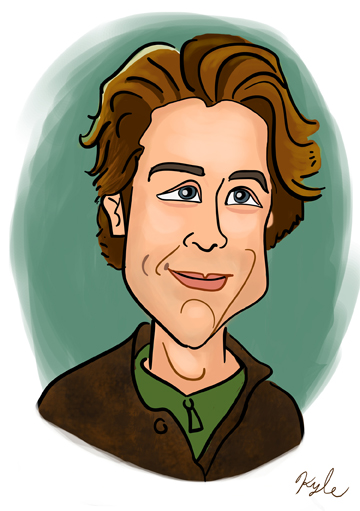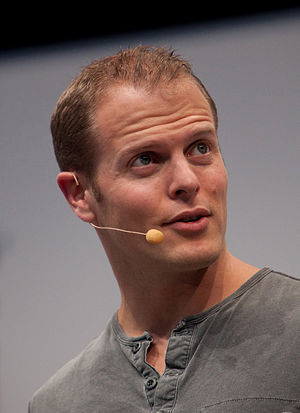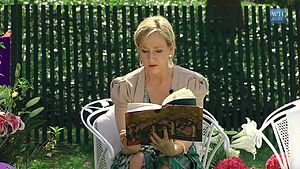
Johannes Gutenberg (Image via Wikipedia)
If you write or in any other way participate in the world of book publishing you’ll enjoy reading “Amazon Signs Up Authors, Writing Publishers Out of Deal“. Wait, enjoy is probably the wrong word for what some will feel… Angst, perhaps?
It’s an update on Amazon’s publishing inroads. Major inroads!
Of course, Amazon execs are playing down their recent victories, and they’re dismissing traditional publishers’ doomsday moans and groans.
“It’s always the end of the world,” said Russell Grandinetti, one of Amazon’s top executives. “You could set your watch on it arriving.”
He pointed out, though, that the landscape was in some ways changing for the first time since Gutenberg invented the modern book nearly 600 years ago. “The only really necessary people in the publishing process now are the writer and reader,” he said. “Everyone who stands between those two has both risk and opportunity.”(NYTimes.com)
Risk and opportunity. Amazon risks pissing off the old guard while gobbling up their lunch. But I, as a storyteller/writer/reader/listener/watcher, the increasingly intimate writer-to-reader relationship that stands to grow stronger, closer and less complicated. Right?
Not so fast, suggest some critics.
Amazon’s publishing program… positions Amazon as agent, editor, and publisher… putting Amazon in direct competition with the world of publishing.(ConsumerReports.org)
And this full frontal assault stands to complicate writers’ situations, at least for a while. Kiana Davenport’s story serves as a warning to writers who try to straddle the opportunity with one foot in traditional publishing and the other in the Amazon world of publishing. I suspect her story is not unique.
Davenport’s infraction was ostensibly innocent enough. While Riverhead Books, a division of Penguin, prepared to launch her novel, The Chinese Soldier’s Daughter, she attempted to beef up her platform by self publishing Cannibal Nights, a collection of twenty year old short stories, as an Amazon ebook. Penguin promptly spanked her by pulling her book deal and demanding that she return her $20,000 advance.
“They’re trying to set an example: If you self-publish and distribute with Amazon, you do so at your own risk,” said Jan Constantine, a lawyer with the Authors Guild who has represented Ms. Davenport.
The writer knows her crime: “Sleeping with the enemy.”(NYTimes.com)
While Amazon is busy rewriting the rules of book publishing the old guard is lashing out, trying to preserve an increasingly unsustainable business model. Time is a reliable resolver of such conflicts, and though we may one day lament certains aspects of the transition, making examples of industrious, self-promoting authors strikes me as a desperate and futile exercise.
As Amazon accelerates it’s challenge to traditional publishing do the opportunities outweigh the risks? Or should self-publishers cower in fear?
I conclude with a thoughtful (but unfortunately unacredited) reflection posted at Instapundit:
Amazon isn’t getting rid of publishers, it’s becoming a publisher. This means the group that controls the distribution also controls the content selection. Not exactly a blow for the Army of Davids in my opinion — when all the publishers are gone, who will publish the books critical of Amazon? Bottom line: It’s not getting rid of middlemen, it’s just muscling them out so it’s the only middleman. It does however reveal that in the age of digital publishing, discoverability and promotion on the digital storefront is the only thing that actually matters. The role of publishers in curation is almost totally abrogated to the sellers. When anyone can publish a book, it’s no longer the publishers that are the gating factor to what we read, it’s the digital storefront. It’s a very interesting shift and definitely good news for Amazon and the like. (Instapundit)
Hat tip to Kathryn Reinhardt for referring the article, “Amazon Signs Up Authors, Writing Publishers Out of Deal“, to me.
Like this:
Like Loading...

















